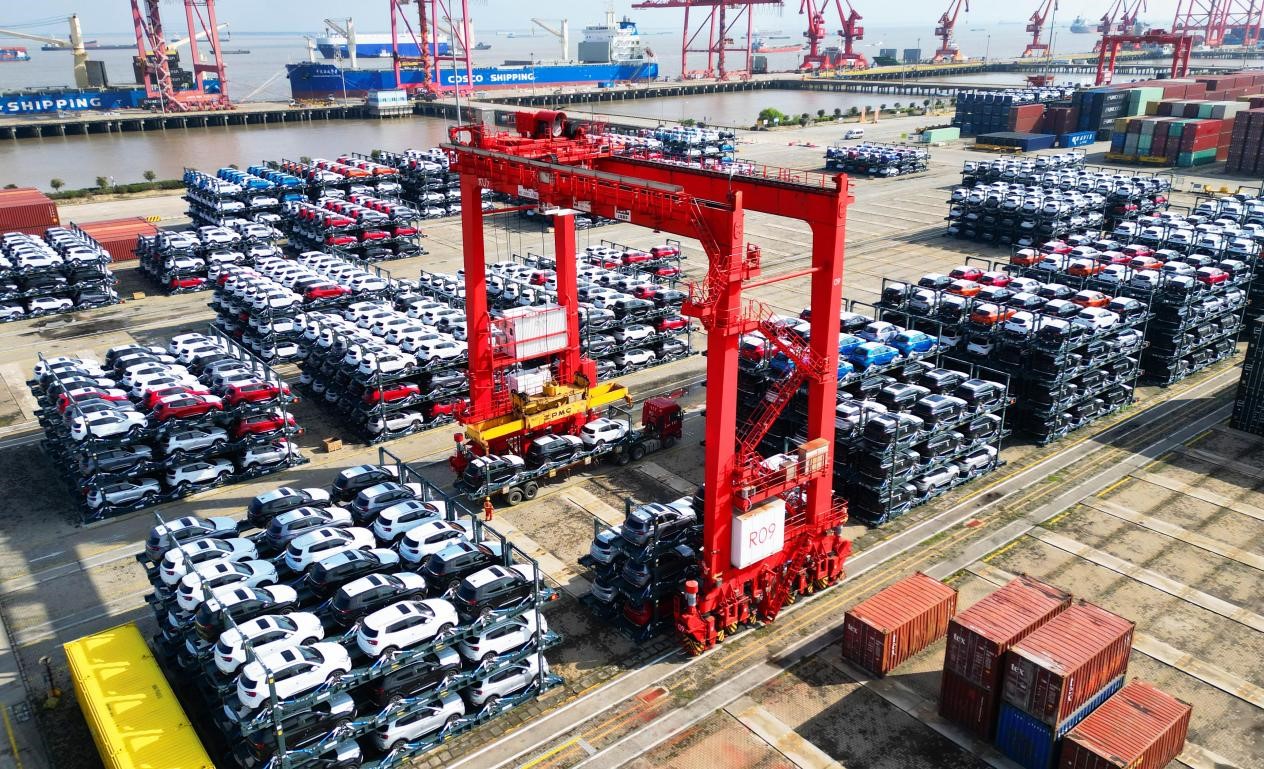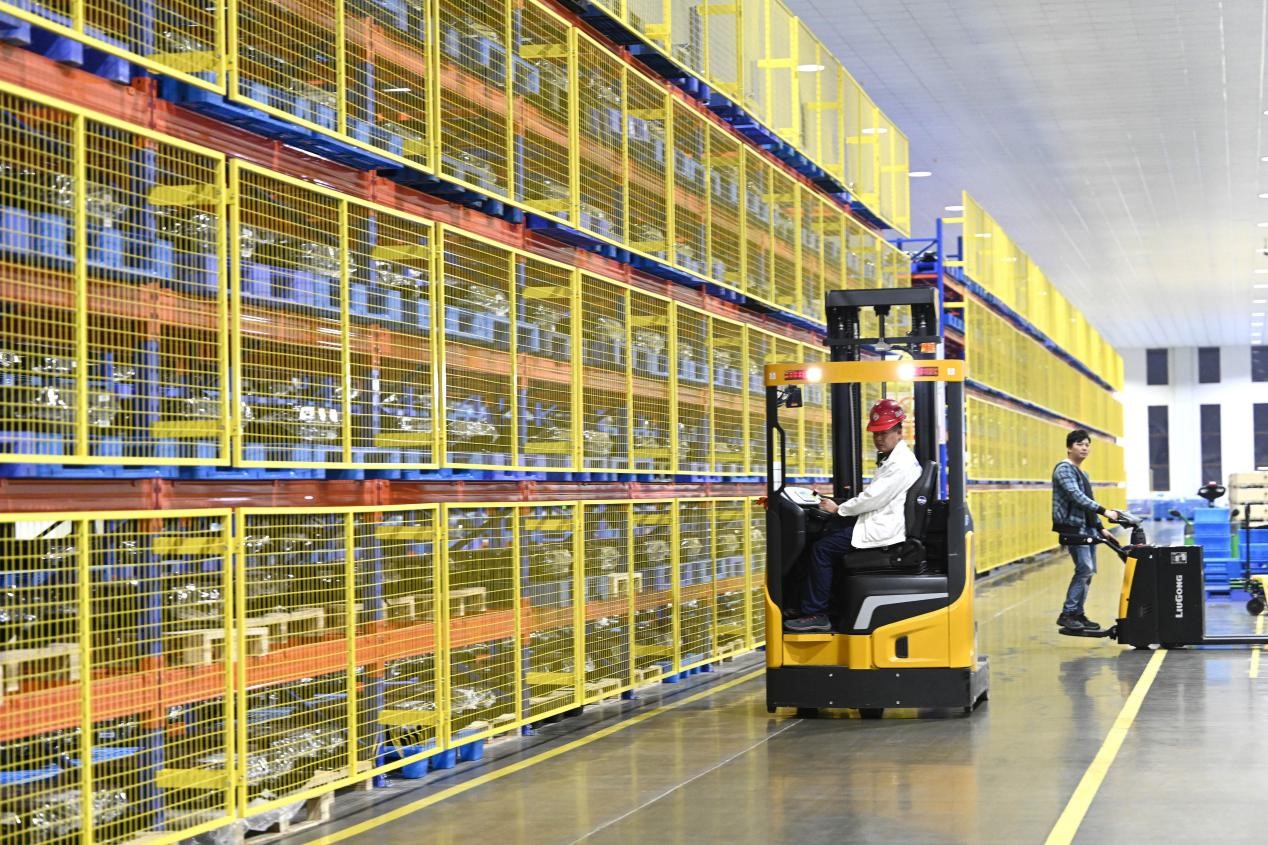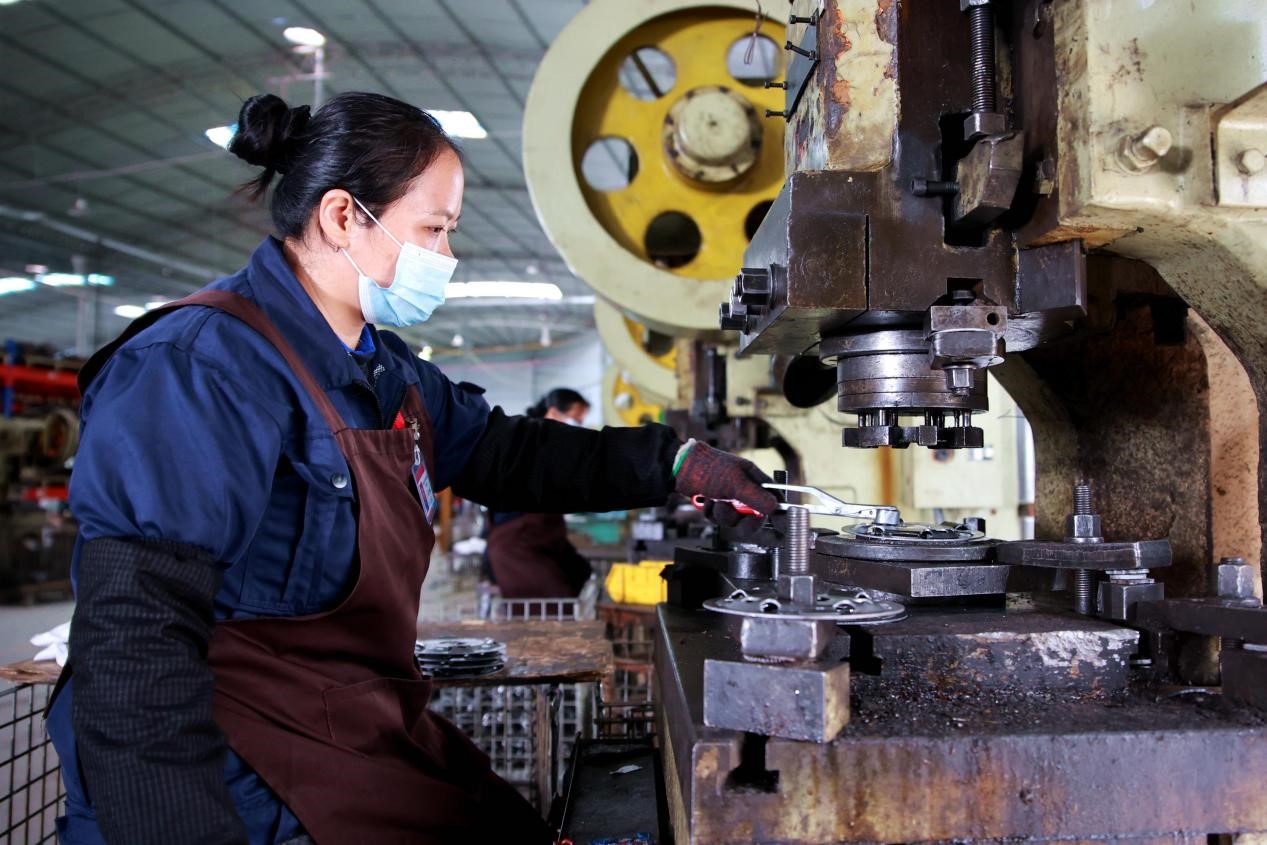China sees big increase in vehicle exports
The Chinese auto industry has hit new highs in terms of exportation.
According to statistics released by the China Association of Automobile Manufacturers (CAAM), Chinese vehicle exports set a new record in October with a total of 337,000 Chinese vehicles, up 12.3 percent from September and 46 percent from a year ago.

Europe-bound vehicles await loading at Taicang Port, east China’s Jiangsu province, Nov. 23, 2022. (People's Daily Online/Ji Haixin)
In the first ten months of 2022, China exported over 2.61 million vehicles, which was also a new record. Over 2.45 million were exported by automakers, up 54.1 percent year-on-year.
This figure, which outnumbered that of Germany, made China the second largest exporter of vehicles during the period, only after Japan, said Xu Haidong, deputy chief engineer of the CAAM.
China is expected to export a total of more than 3 million vehicles this year, Xu added.
Export destinations of Chinese vehicles have been gradually expanded to North America and Europe, from the traditional markets in Africa and the Middle East.
Cui Dongshu, secretary general of the China Passenger Car Association, told People's Daily that China’s exports of finished automobiles to Europe, North America, and Asia increased rapidly during the January-October period this year, while Mexico, the Philippines and Belgium saw a big rise in the number of imported vehicles from China in October.
The recognition came from the strength of Chinese vehicles and the constantly improving supply chain. Chinese carmakers, continuously enhancing their innovation efforts to better the design of their products, quality control and services, have significantly lifted their competitiveness.
Besides, Chinese enterprises have established supply chain systems overseas including R&D, marketing, logistics, spare parts, manufacturing, finance, and used car supply chain systems, which have also laid a solid foundation for the development of Chinese auto manufacturers in overseas markets.

Employees work at a production base of batteries for new energy vehicles in Liuzhou city, south China's Guangxi Zhuang autonomous region, Nov. 24, 2022. (People's Daily Online/Li Hanchi)
"Exported vehicles have turned from lower-tier products to higher-tier ones. Their appearance, quality, technologies and marketing strategies can satisfy the diversified market demands around the world," Cui said.
The exports of new energy vehicles (NEVs) were a highlight. In the first ten months, 499,000 NEVs were exported, surging 96.7 percent year-on-year. China, ranking first in the world for consecutive years in terms of the production and sales of NEVs, has entered a new period of global market expansion.
The robust performance of NEVs was a major force driving the high-quality growth in vehicle exports.
Major ports in China witnessed the global expansion of Chinese electric vehicles (EVs) and relevant industrial chains. In the first three quarters of this year, the exports of EVs via the north Chinese port city of Tianjin skyrocketed 667.7 percent year on year. In the same period, the combined exports of electric passenger vehicles, lithium batteries and solar batteries via Shanghai surged 143.3 percent from a year ago.

An employee works at a company manufacturing auto parts in Tongdao Dong autonomous county, Huaihua city, central China’s Hunan province, Nov. 11, 2022. The company develops, assembles and sells clutches, bearings, car bushings, and clamping yokes. All of its products are exported to Europe, the Middle East, Southeast Asia and other parts of the world. (People's Daily Online/Li Shangyin)
According to statistics released by the General Administration of Customs, 34 percent of the new energy passenger vehicles exported by China went to Western Europe in the first half of 2022. In particular, Belgium is the largest export destination for Chinese NEVs during this period. The European market has become a major emerging export destination for Chinese EVs.
Given the rapid rise in exports and the constantly improving competitiveness of products, the Chinese automobile industry has entered a new stage.
Recently, the Ministry of Industry and Information Technology, together with other relevant departments, rolled out 17 specific measures, including further expanding automobile consumption, continuing the exemption of NEV purchase tax and launching pilot programs to electrify all public vehicles in some cities.
Experts estimated that as the 17 measures are implemented, Chinese automakers will achieve the goal to produce 10 million vehicles overseas and export 5 million from home each year in 2031.
Photos
Related Stories
Copyright © 2022 People's Daily Online. All Rights Reserved.









